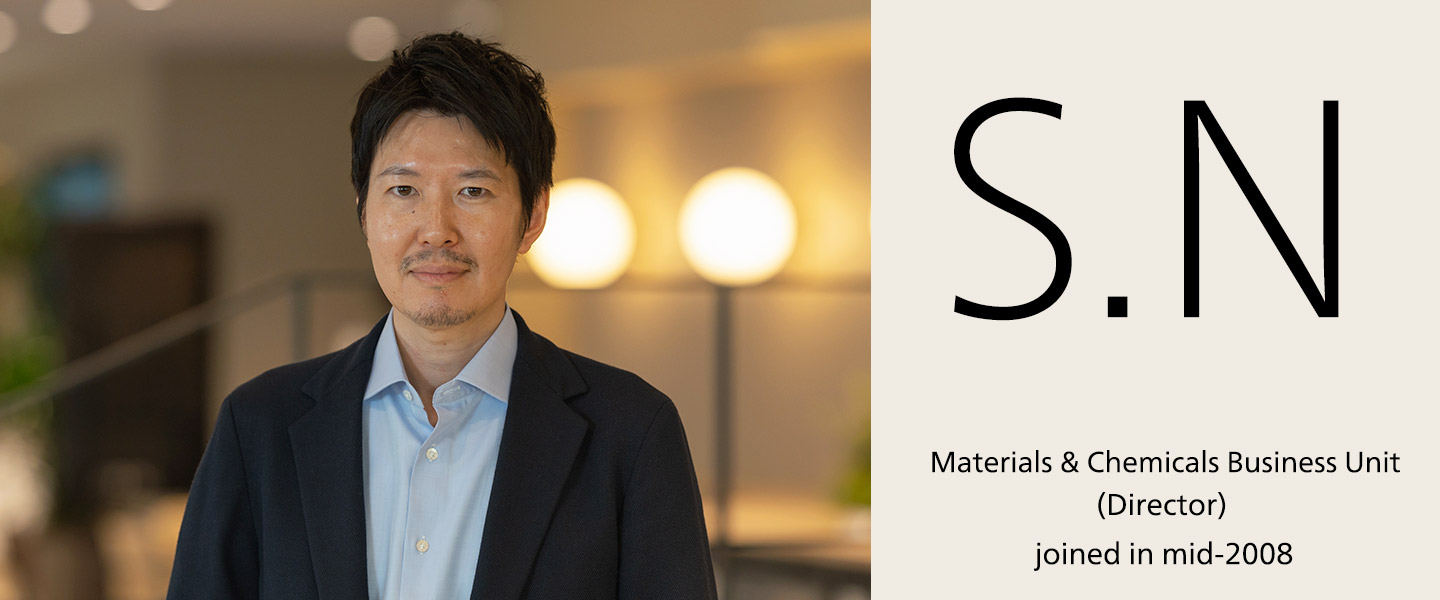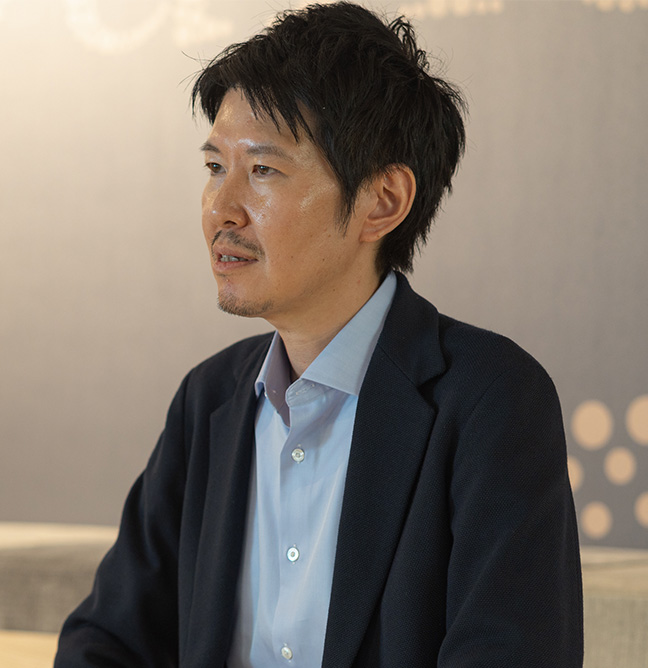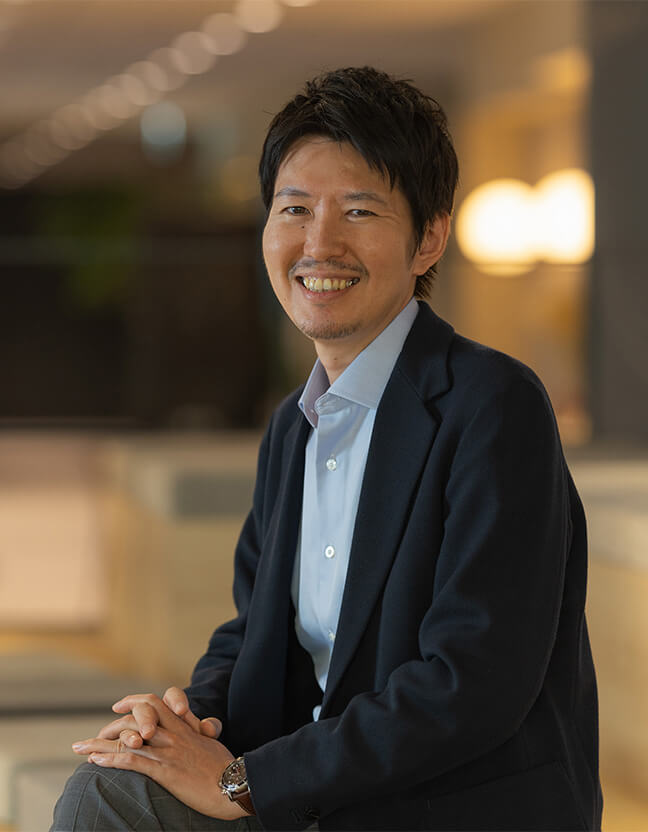Moving DX forward by assisting reforms that transcend the boundaries of individual companies, leading the materials chemical industry to a new global standard
DX promotion is an urgent task for the materials chemical industry as it increases its presence in the global market. In this issue, we meet the director who is leading reform projects in this area, as well as collaborations that transcend the boundaries of companies and industries.
Moving DX forward by assisting reforms that transcend the boundaries of individual companies, leading the materials chemical industry to a new global standard

Experiences in ABeam ~ Impressive Project~
Reforming the Japanese manufacturing industry through a low-key approach that starts with device wiring

Amid the accelerating society-wide trend toward DX, manufacturing companies are among those with a strong need to leverage technology and data in ways that increase customer value. I help with manufacturing DX in such thematic areas as future industries, future plant concepts, smart factories, chemical chain management, and human resource development.
With their strengths in products and materials, Japanese companies have been able to boast superiority in the materials chemical industry. If you look at the global picture, however, the U.S., China, and Europe are leading the industry's business operations as the presence of Japanese companies wanes. That is why I feel we need to get serious about reform.
DX initiatives are, of course, being advanced in the materials chemical industry as in others. But in reality, these are usually pinpoint approaches to particular topics undertaken by individual companies and internal divisions, which makes it difficult to exploit their value cross-organizationally within the vertically structured corporate culture of large companies. What happens when you take all those pinpoint efforts and bundle them? More to the point, what would we get if we were to envision an overall positioning of DX for the industry as a whole? Isn't that just the perspective we need?
This is why, in addition to supporting reform themes that need to be addressed in the short term, I am also focusing on support for medium- to long-term reform themes with a view to the overall picture of the industry 10 to 20 years down the road. We can utilize data to find new future industries, clarify the company's position and identity, then improve customer value. I am convinced that this is the way to clarify how Japanese manufacturers can compete in the global environment and solve social issues.
In working at production sites, I wear a number of hats, performing roles that include planning and conceptualizing transformation themes, creating and executing implementation roadmaps, getting clients involved, and deriving and disseminating insights from a given project. Sometimes projects start with a visit to the manufacturing site, which is the foundation of the manufacturing industry, to wire various devices for data acquisition and utilization. I don't limit our scrutiny to the data we are analyzing, but also stick around the manufacturing site for weeks at a time to see the impact on manufacturing.
In that sense, I guess you could say that I am a consultant who is very concerned with the actual and the tactile. I feel that we have to take this down-to-earth approach if we want to gain the understanding of people in the field and make our efforts truly fruitful. Top-down, forceful action will push a project forward, but the key point is whether it will result in meaningful outcomes. I continue with steady, routine communication, thinking through how to make people perceive the value of reforms that have yet to come into view.
Why ABeam ?
I learned how tough transformation is by jumping ahead to the implementation phase of the strategy
Upon graduating, I joined a major SIer, where I was in charge of system construction. Through systemization, I experienced how absorbing it can be to solve corporate issues for clients.
At the same time, though, there was also that aspect of IT-based service providers in which you have to sell your own company's product. Even when listening to the varied challenges facing a client, we tend to come up with ideas that are pertinent to what our own company is trying to sell. I wanted to advance to an industry where our solutions wouldn't be limited to systems, and where I would be able to genuinely address the problems of my clients. This was the mindset with which I became interested in the consulting industry.
Of the many companies in the consulting industry, I chose ABeam because I knew the company culture and trusted my own instincts. ABeam was the one that seemed to me to be most willing to take time, to see me as an individual, and to understand me. I decided to move on to ABeam based on the crucial criterion of who I would be working with.
In the Strategic Business Unit to which I was assigned when I first joined the company, I experienced several business strategy and BPR projects. After that, my desire to stick to the execution and realization of the concepts I had drawn up grew stronger, and three years later, I was transferred to the industry-specific business unit to which I currently belong.
Of course, the planning, conceptualization, and strategy formulation parts of the job are rich sources of satisfaction as a consultant. However, it is also true that in changing times, more emphasis is being placed not only on the strategic picture but also on the subsequent phase in which measures are implemented. Partly because I had often worked with clients in the manufacturing industry, I wanted to decide on an industry and take time to provide meticulous support in the execution phase for a single client.
After my transfer, I participated in a global SCM reform project for a Japanese manufacturing company. I was able to work with one client for about five years, just as I had hoped. How do the strategies we plan and conceptualize go on to affect the real decision-making and management of the company? I found it to be a truly valuable experience to witness how some things did and some did not go according to the strategy we had devised. Making a major transformation theme happen on a global scale involving overseas subsidiaries and regional headquarters (RHQ) is no simple matter. I think this original experience is the reason why I cannot depart from my style of leaning in and working on the ground, close to the field.
Future ~Growth Story~
Leveraging ABeam's strengths in collaborating flexibly across industries

As I mentioned at the outset, when we think about the future of the materials chemical industry in relation to global trends, the reality is that it is difficult for individual companies and divisions to compete on a company-by-company basis. A bright future will not pan out for us unless we persistently work through this process by establishing a medium- to long-term vision, not only for our own companies and divisions, but also for other industries and over a more expansive time frame. This is why I am also intent on leveraging ABeam's client base and our knowledge across a variety of industries and companies.
When putting initiatives into action, for example, we sometimes borrow knowledge from areas of engineering that are beyond the scope of a consultant's capacity. For a leader, this means doing more than just borrowing, but ultimately incorporating it into the overall story, so that one team can take the project through to completion, from conception to execution. I believe this kind of team formation is among the strengths of ABeam that other firms lack.
Even in our current projects, we always have someone helping us. ABeam has a well-established culture of collaboration, where people feel free to call on each other and take the time to work together, even outside of their own projects. When you look at it from the client's point of view, it wouldn't make sense for project outcomes to be solely dependent on the knowledge of the individual consultant with whom they are in contact. We can always respond directly to the client's expectations. This is the kind of supple resilience that ABeam brings to the table.
Going forward, we will be a driver of growth in the Japanese manufacturing industry by continuing to respond to the demands of the market and of the future, while ensuring that the transformation themes we have initiated take shape as we further broaden the scope of those themes.
I also want to seek out more colleagues who will work with me on this initiative.
Eventually, I would like to establish transformation projects in the manufacturing industry, particularly in the materials chemical industry, as a new market for ABeam.
If this leads to the resolution of social issues as a result, I would be more than happy.


